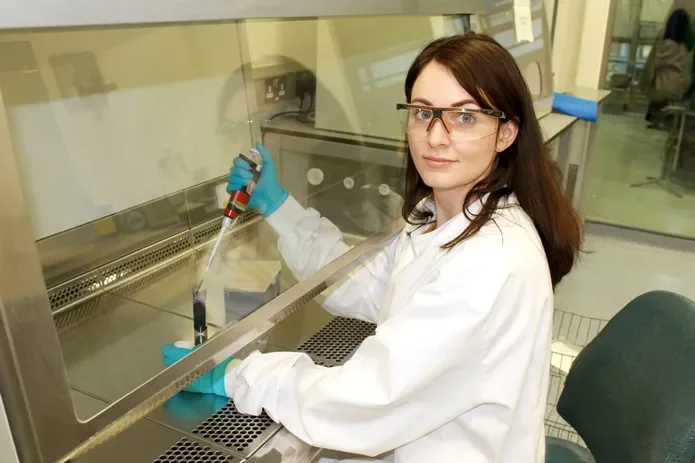

DCU research identifies new clues about pathways in pancreatic cancer
A recent study by researchers at Dublin City University and the National Cancer Institute in the USA has uncovered new clues about the biology of the predominant form of pancreatic cancer, which is called pancreatic ductal adenocarcinoma (PDAC).
Despite only accounting for about 3% of all cancers, PDAC is the third leading cause of cancer-related death in the United States, and its incidence is increasing.
To date, genetic studies have identified particular variations in a person’s DNA sequence that are linked with a higher risk of developing PDAC, but little is known about how these DNA variations impact on the development of this disease. These early stage research findings provide an important insight for further exploration. Although pancreatic cancer is relatively rare, it is one of the most fatal forms of cancer worldwide.
A largely silent disease to begin with, its symptoms often show up when the disease has already spread to nearby organs. In addition, the location of the pancreas in the body, close to major organs such as the stomach and liver, adds to the complexity of treatment.
“If we know more about the biological pathways and gene networks that are enriched for pancreatic cancer risk variants involved in the development of this disease, we could look for new ways to identify people who are perhaps at higher risk, and possibly even new types of treatment strategies into the future,” explains DCU researcher Dr Naomi Walsh, who is lead author on the new study published in the Journal of the National Cancer Institute.
Walsh (DCU) and senior author Dr. Rachael Stolzenberg-Solomon (NCI) and colleagues from the PanScan and PanC4 consortiums, took a wide perspective when examining DNA changes potentially linked in pancreatic cancer development. In effect, the researchers looked at the existing genetic data with a broader spotlight. “It may be that single DNA variants already identified may only represent the tip of the iceberg in relation to genes associated with PDAC risk,” says Dr Walsh, a Senior Research Fellow at the National Institute for Cellular Biotechnology in DCU.
“Therefore, rather than looking at single DNA variant changes, we looked at the combined contribution of many PDAC-linked variants acting within a biological pathway. Cancer development tends to involve networks of genes that link together, and our study was able to look at the biological context of genes in PDAC and identify some important genes and pathways.”
Key Findings:
The study explored and identified genes that may have previously seemed to be on the fringes of involvement in PDAC, but when taken as part of a bigger biological picture these groups of genes appear to play important roles in the disease.
The research started with existing genetic information from several large genome wide studies of over 9,000 people who developed PDAC compared to almost 12,500 controls without PDAC.
This study assessed 3,795 pathways and gene sets from The Broad Institute in the USA and whittled the data down to a ‘top 5’ of biological pathways associated with PDAC.
These pathways associated with PDAC included genes involved in maturity onset diabetes of the young (MODY), pancreatic beta cell development, cardiac hypertrophy, breast cancer 17q11-q21 amplicon, and a network of genes correlated the expression of the ATM gene, which in turn is linked to increased cancer risk.
“Now that we have identified these pathways, we can start examining their roles more closely in the pancreas and in the development of cancer,” says Dr Walsh.
“This basic biological research can point us to new ways to understand and tackle this deadly disease.”
Pictured Dr Naomi Walsh, Senior Research Fellow at the National Institute for Cellular Biotechnology, DCU
